We Want One Solution, But One Solution Can't Solve Our Polycrisis
Authored by Charles Hugh Smith via Substack,
Whatever the problem, our minds seek one solution--preferably a simple one--to escape the trackless wilderness of complex, inter-connected problems. Problem-solving boils down to identifying the key problem and finding a fix that’s easy to understand and straightforward to apply.
Our minds rebel when confronted with polycrisis, a knotted mess of inter-connected problems, and so we apply solutions we already have in hand. As I explained in previous Musings, this leads us to modify our description of the problem so it aligns with the solution we already know.
This approach cannot actually solve the problem, but claiming we have a solution in hand is a highly attractive expediency for those tasked with solving problems, i.e. the leadership elites. It’s equally attractive to the rest of us, as we all want to banish uncertainty and anxiety with a quick painless fix.
Let’s start with the one solution many favor: fix the money, fix the world: if we reinstate sound money, that will fix the world. The proposed solution is easy to understand and straightforward to apply: gold (or bitcoin) is the only legal tender, so paper and digital money will be replaced by gold coins (or bitcoin equivalents).
The impetus for proposing this solution is self-evident: creating money out of thin air or by issuing credit-money that accrues interest is intrinsically self-liquidating, and so the status quo monetary system will run to failure (fiscal-financial-economic crisis) unless we change course.
I have often written that “if we don’t change the way money is created and distributed, we’ve changed nothing,“ because the current monetary system creates money at the top of the wealth-power pyramid and distributes it to the top.
The sum “trickling down” to the bottom 90% is losing purchasing power as prices rise, and so we’re seeking a monetary system that 1) reverses the “trickling” from “down” to “up” and 2) preserves the purchasing power of the bottom 90%’s labor, which is the “capital” they “own.”
The problem with the “gold is the only money” solution is it only fixes one problem: governments inflating away the value of their currency. In a corrupt society, it doesn’t eliminate corruption; it just means corruption will be transacted in gold or bitcoin.
It doesn’t reverse the “trickle” of money from its source from capital to labor/work, it favors capital enriching itself just as much as the current fiat system.
Like all such one-size-fits-all solutions, it also creates problems that are glossed over by its promoters, as everything is connected in ways that are not always visible at first blush.
Let’s break it down to its most basic dynamics.
In a “gold is the only money” economy, ten people each deposit one gold coin in a bank to earn interest on their money. The bank holds two coins in reserve to redeem depositors’ withdrawals, and loans the other eight coins to a new business seeking to expand.
Without the loan, the bank has no income to pay interest on the cash deposits. Without the loan, the enterprise doesn’t have the capital to expand. It’s win-win-win: depositors earn interest, the bank skims a profit for its owners and the enterprise now has the capital needed to expand.
So far so good, but...
Since economies expand and contract cyclically, a downturn occurs, and people spend less as a response to rising risk: revenues drop, workers are laid off and defaults / bankruptcies start rising.
Reducing-risk prudence leads four depositors to demand their coin back, and since the bank only has two coins in reserve, it calls the loan it made to the enterprise. The business has suffered in the downturn and can’t pay back the loan. The bank seizes the business and auctions its assets. Since valuations have fallen in the downturn, the assets only fetch two coins.
The bank now has four coins but the number of depositors demanding their coin back has risen to six. The bank fails, six depositors lose their money, and the enterprise is bankrupt.
This is precisely what happened in “sound money” 19th century America: hundreds of banks failed, depositors and borrowers were wiped out. The risk of panics triggering loans being called, assets being sold off at fire-sale prices, banks failing and depositors being wiped out are all intrinsic risks in this arrangement.
OK, so here’s the fix to panics: the government guarantees all depositors will get their gold coin back should a private bank fail. But the government doesn’t have enough gold to back up every deposit nationally; it too only has a reserve. Once the panic spreads nationally, the government’s reserves of gold coins are soon depleted.
This is the problem with “gold is the only money:” enterprises need capital to expand / launch, depositors seek a return on their capital, banks provide an institutional layer to manage these credit contracts.
After seeing other depositors lose their money, people no longer trust either banks or the government, and gold coins are withdrawn from circulation (stored at home) as a prudent measure. Credit--always limited to what banks had on deposit--becomes ever scarcer, crippling the real-world economy, as enterprises starved of capital have no way to expand.
OK, so here’s the fix: let’s let the government issue paper money “backed by gold.” So the Treasury issues $5,000 (the current global price of an ounce of gold) of currency for every ounce of gold it holds. But without a mechanism to keep currency and the market value of the gold aligned, then the Treasury can over time issue $50,000 of currency for each ounce held in the vault. The “backed by gold” claim is an artifice.
There’s another problem: gold, silver, oil, etc. are all commodities whose priced is “discovered” in global markets, so their value as measured in goods and services fluctuates beyond the control of any government.
As the global economy enters a boom cycle, gold rises to $10,000 an ounce, and the Treasury issues an additional $5,000 per ounce in currency. But when the boom turns to bust and the market value of gold returns to $5,000 per ounce, does the Treasury withdraw half the currency from circulation? No. The “backed by gold” currency has depreciated by half.
As I have often pointed out, “backed by gold” is illusory unless each unit of currency can be converted to gold coins on demand. Anything short of this is a duplicitous artifice.
Here’s another problem: the economy is expanding smartly, but the Treasury’s stash of gold isn’t expanding to match the increase of demand, as the government’s gold mines aren’t yielding much new gold. And since it’s costly to extract and refine the gold, the government spends most of the new gold paying to operate the mine.
The supply of gold coins is limited, and so money is scarce. People revert to barter or start using scrip or credit paper to transact business.
This is precisely what happened in the Medieval trade fairs: gold and silver were scarce, and as economic activity expanded, there weren’t enough coins to grease the expanding universe of transactions and productive enterprises.
The point here is using only precious metals as money comes with its own restrictions and risks. This is why economies augmented “sound money” in the first place. Using a commodity--which is subject to the same price discovery of supply and demand as any other commodity--is intrinsically problematic.
Basing a currency on a basket of commodities ends up facing the same problem: as the global price of the commodities fluctuates, so does the value of the currency, opening the door to distorting arbitrage and financial panics.
You see the other problem: the wealthy who have accumulated gold and silver are the lenders, and the commoners who only have their labor to sell / invest are the borrowers. There is risk on both sides of this equation, but over time those collecting interest will get richer and borrowers will be wiped out by a panic or downturn.
The wealth “trickles up,” and if the wealthy don’t lend their wealth to new enterprises, the economy stagnates. If banks don’t exist due to social trust being limited, then lending is restricted and the economy stagnates.
As a general rule, labor needs some working capital to turn work into a productive enterprise or other assets. So when entrepreneurial commoners sought to expand production in the “sound money” 1200s to 1400s, since they had little gold/silver or access to credit, they reverted to letters of credit and bills of exchange--forms of “paper money” that enabled transactions that would have otherwise never occurred.
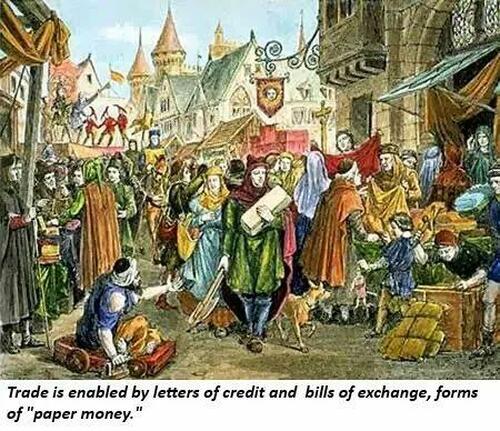
As always, I recommend Braudel’s trilogy for those interested in gaining a more comprehensive understanding of money and the development of capitalism:
The Structures of Everyday Life: Civilization and Capitalism, 15th-18th Century Volume 1
The Wheels of Commerce: Civilization & Capitalism 15th-18th Century, Vol. 2
The Perspective of the World: Civilization & Capitalism, 15th - 18th Century Volume 3
I covered these topics in my books Money and Work Unchained and A Radically Beneficial World, in which I explain why attempting to make one form of money do all the work we need money to do is doomed by the intrinsic limits of each form of money.
Money that excels at being a “store of value” fails in an expansive capitalist economy as a “means of exchange” for all the reasons outlined above, and all the fixes to this create additional problems, as outlined above.
This is why the Chinese introduced paper money: it wasn’t to rip off commoners via inflation, it was the necessary means of greasing local commerce in an economy without credit and scarce precious-metal coinage, much of which was in the hands of the wealthy as it was an excellent “store of value.”
Every fix that’s easy to understand and straightforward to apply has similar limits that generate inherent problems which cannot be resolved with easy fixes, as those fixes generate another set of problems.
So to end corruption, we impose more laws, more oversight, and stiffer penalties. But as recent revelations have shown, changing the rules of governance, adding transparency laws and boosting penalties did not stop corruption from seeping into every nook and cranny of America’s ruling elites.
As Lao Tzu observed, “The more laws and restrictions there are, the poorer people become. The more rules and regulations, the more thieves and robbers.“ Corruption isn’t reduced by adding more laws, it’s reduced by changing the incentives and what society accepts or deems unacceptable.
Adding more laws to be skirted by elites doesn’t change anything; only the withdrawal of The Mandate of Heaven can disempower elites serving their own interests with absolute impunity.
Here are other examples of “this one solution will fix the world.”
If there’s “plenty of energy, that fixes the world.“ But if inequality has reached extremes, having lots of energy for the wealthiest few to enjoy isn’t going to solve inequality, or the social disorder it generates.
Or this solution: AI will fix the world. Since AI is owned and controlled by the ruling elites, it will do nothing but entrench the extremes of inequality that are destabilizing the social, political and economic realms.
Or this: technology will fix all our problems. Putting data centers owned by our corporate overlords into orbit fixes nothing.
The point I endeavored to make in my Revolution Trilogy--The Mythology of Progress, Ultra-Processed Life and Investing in Revolution --is that all these conventional solutions are self-serving artifice, expedient illusions that relieve our anxiety but at the cost of leaving problems unaddressed while layering on more problems.
There are no monetary or technological fixes to moral decay and the corruption of ruling elites. Stable social orders--from tribes to empires--are successful because their ruling elites have a reciprocal relationship with the commoners who sustain the entire system. Each class has its own duties and responsibilities to the other classes.
Records from the Roman Empire’s rule in Egypt show that much of the ruling elite’s time was spent responding to pleas for assistance from the subservient classes and resolving administrative / managerial issues.
When ruling elites renounce reciprocity to serve their own interests with absolute impunity, then the social order soon reaches the “let them eat brioche” phase where society fragments. If redress (i.e. rebalancing) is suppressed, then retribution comes to the fore: the Mandate of Heaven is lost and chaos ensues.
In either case, the only way to reconnect reciprocity / rebalance a fatally imbalanced system is a social revolution that is neither political or economic per se but which transforms both the political and economic realms by changing what’s acceptable and what’s no longer acceptable.
Polycrisis can’t be untangled with simple top-down, one-size-fits-all solutions or by modifying the definition of the problem so some painless fix can be touted as a solution. These illusory fixes only make the problems worse.
The more productive approach is to decentralize control and capital so more flexible, adaptive units can experiment with solutions: households, communities, cities, counties, locally based enterprises and regions.
The entire Waste Is Growth Landfill Economy mindset must be replaced with new incentives based on a new understanding that artifice is not a replacement for authenticity, and monetizing what is most valuable destroys it.
Adapt or die sounds harsh, but if real adaptation is required, then illusory fixes, self-serving elites and expedient redefinitions of the problem will only accelerate the unraveling and the reckoning.
Tyler Durden
Mon, 03/02/2026 - 16:20

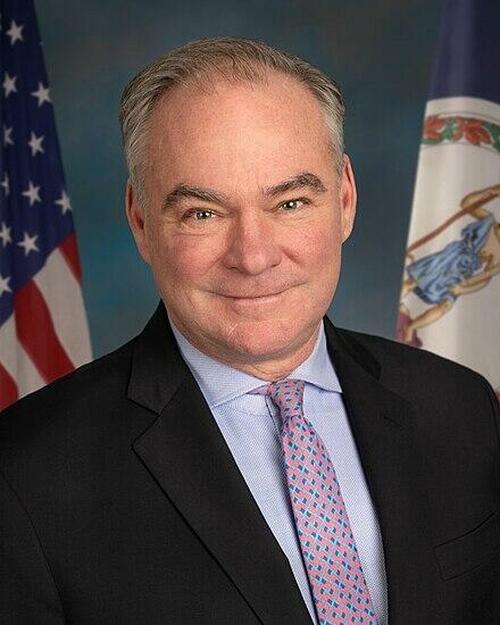


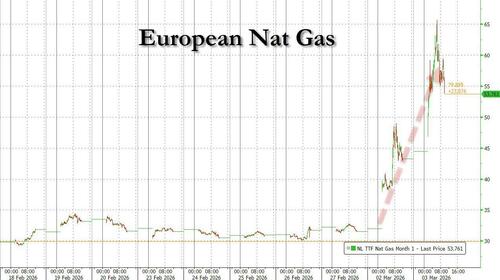
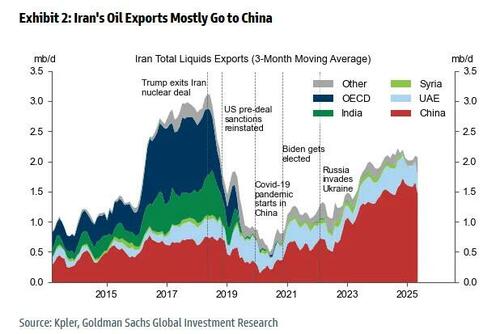
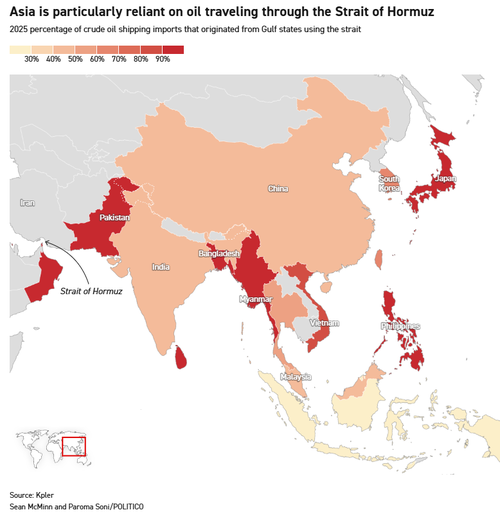
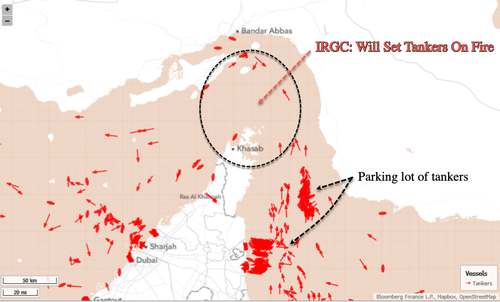
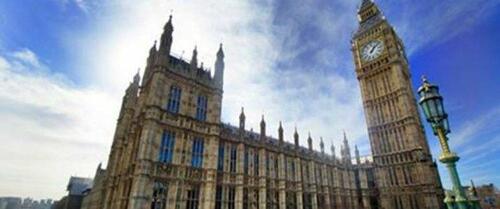

 A US Air Force weapons loader delivers a 2,000lbs bomb for loading into a B1 bomber at the Diego Garcia base, UK, on 22 Oct. 2001. USAF/DOD/AFP via Getty Images
A US Air Force weapons loader delivers a 2,000lbs bomb for loading into a B1 bomber at the Diego Garcia base, UK, on 22 Oct. 2001. USAF/DOD/AFP via Getty Images An image released by the U.S. Navy shows an aerial view of Diego Garcia. U.S. Navy via AP
An image released by the U.S. Navy shows an aerial view of Diego Garcia. U.S. Navy via AP A dog sits at the main gate of the UK's RAF Akrotiri air base after it was hit by a drone strike near Limassol, Cyprus, on March 2, 2026. Petros Karadjias/AP
A dog sits at the main gate of the UK's RAF Akrotiri air base after it was hit by a drone strike near Limassol, Cyprus, on March 2, 2026. Petros Karadjias/AP




 Opposition leader María Corina Machado during an interview with AFP in Caracas, Venezuela, on July 25, 2024. Federico Parra/AFP via Getty Images
Opposition leader María Corina Machado during an interview with AFP in Caracas, Venezuela, on July 25, 2024. Federico Parra/AFP via Getty Images U.S. President Donald Trump and Venezuelan opposition leader María Corina Machado in the Oval Office on Jan. 15, 2026. Daniel Torok/The White House/Reuters
U.S. President Donald Trump and Venezuelan opposition leader María Corina Machado in the Oval Office on Jan. 15, 2026. Daniel Torok/The White House/Reuters




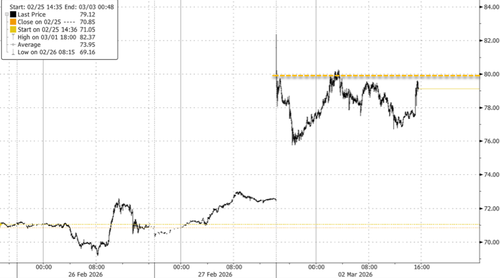
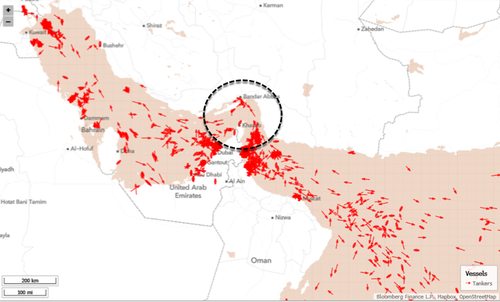
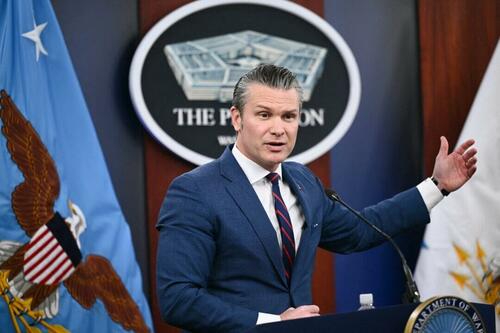

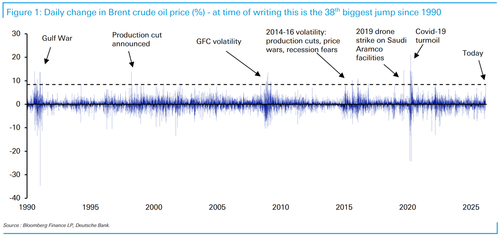
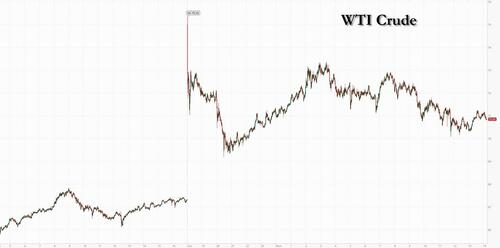
Recent comments